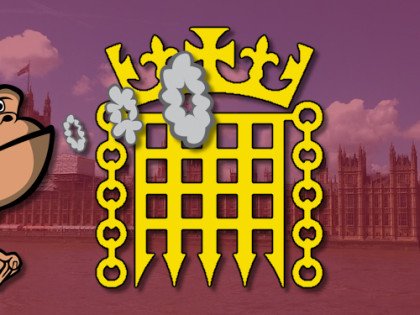As a part of Parliament’s Science and Technology Committee, Norman Lamb has helped to transform a sceptical government into one that has broadly supported vaping and now ranks as one of the world leaders in tobacco harm reduction.
Recently, he had a pacemaker fitted but announced that he wasn’t about to stop working hard for his constituents and the nation: "I don't want people to reach the conclusion that I'm done."
This changed at the weekend as he announced he was not going to stand at the next general election. It seems that the ongoing debate over Brexit has played a major part in this resolution: “My decision! I hope people will accept that it has been reached after a lot of soul searching and on the basis of what I think is best for the country and my constituents. I hope we can avoid the bile and abuse on both sides which has characterised this debate.”
The final thing Lamb has done as chair of the cross-party committee is to write to Professor John Newton, Director of Health Improvement of Public Health England, regarding the media coverage of vaping in the United States.
He wrote: “You will be aware that in recent weeks there has been coverage of several issues relating to e-cigarettes, including: reports that some deaths in the United States have been linked to the use of e-cigarettes and vaping products; concerns that flavoured e-cigarettes are "luring" children into vaping and a call for flavours to be banned in the UK; and the introduction of a ban in India on the production, import and safe of electronic cigarettes due to concerns about the risks they pose to health and to the young, in particular.”
“I would be grateful if you could set out: PHE's response to these recent reports; what review of the evidence on the effects of e-cigarettes PHE has undertaken in recent months and whether PHE plans to conduct any further research in light of recent concerns; what conversations PHE has had with other countries on: of their approach to e-cigarettes; of any recent changes they have made to that approach; of the evidence that led other countries to take the recent actions mentioned earlier in this letter, and whether PHE intends to issue any further advice to clinicians and the public on the use of e-cigarettes, including as a stop-smoking tool.”
Professor John Newton responded with a comprehensive coverage of the evidence that supports the encouragement of vaping and the facts surrounding the subject.
“We are obviously concerned to hear about the alleged vaping deaths in the USA and keen to understand more about what has caused them,” Newton said. He noted: “The CDC has recently been clearer about the illicit products implicated in this outbreak and it looks as if most, if not all of these, were related to illicit vaping products, including vaping cannabis derivatives.”
Striking a note of reason and common sense, Newton went on to add: “It is important to distinguish between this outbreak, which has mainly affected young male users of cannabinoid inhalers, and the products used by around nine million Americans and three million people in the UK, where we have yet to see any comparable effects.”
He referred to the University College London Smoking Toolkit Study reports to debunk fears about teen vaping epidemics and showed that data from England, Scotland and Wales suggests that there is no renormalizing of smoking or a gateway from vaping to tobacco.
Newton pointed out that flavours do not explain why there is a difference between the UK and the USA. He offered up these three reasons:
- The UK has a ban on print and broadcast advertising with restriction on online marketing, but the USA does not.
- The UK has a cap on nicotine concentration, whereas the USA does not. For example, Juul, the most popular product in the USA, is available in the UK but with less than half the nicotine concentration.
- The USA has a high-profile campaign warning young people against vaping in graphic terms and although this is intended to reduce youth vaping, the campaign and its media coverage risks heightening young people’s perception that their peers are regularly using e-cigarettes, which in turn risks more serious unintended consequences.
Professor Newton sees the biggest danger being that of smokers worrying that they should stay with cigarettes rather than switch to vaping as a result of media coverage, and emphasises: “This reinforces the need to have clear and consistent communication from public authorities about the relative risks of smoking and vaping.”
Related:
- PHE response to cannabis oil – [link]
- Data on adult and young people’s smoking and vaping habits 1 – [link]
- Data on adult and young people’s smoking and vaping habits 2 - [link]
- Norman Lamb’s letter - [link]
- Professor John Newton’s reply - [link]
- Norman Lamb’s Twitter announcement – [link]
Dave Cross
Journalist at POTVDave is a freelance writer; with articles on music, motorbikes, football, pop-science, vaping and tobacco harm reduction in Sounds, Melody Maker, UBG, AWoL, Bike, When Saturday Comes, Vape News Magazine, and syndicated across the Johnston Press group. He was published in an anthology of “Greatest Football Writing”, but still believes this was a mistake. Dave contributes sketches to comedy shows and used to co-host a radio sketch show. He’s worked with numerous start-ups to develop content for their websites.
Join the discussion
Parliament Fears Two
The Department for Environment, Food and Rural Affairs faced questions from a Conservative MP and, oddly, a member of the Department for Environment, Food and Rural Affairs
Parliament
Andrea Leadsom has been quizzed by Rupa Huq and Derek Thomas about the promotion of vaping and support to those who want to quit
Vaping Has “Substantial Potential”
The UK Parliament Health and Social Care Committee has been told that vaping has ‘substantial potential’ to solve the problem of the harms caused by smoking by Professor Peter Hajek
Trading Standards Welcomes Clarity
The Chartered Trading Standards Institute says it welcomes the “clarity and action from government to tackle youth vaping” with the plan to ban disposable vapes and related announcements








-listing400.jpg)


